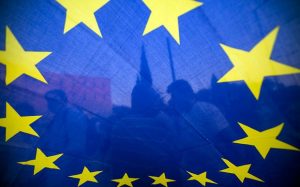Are France and Germany destined to be Europe’s indispensable nations?
![]()
 The new world order demands a new compact on both sides of the Rhine. That’s the conclusion of Joschka Fischer, former German foreign minister and founder of Germany’s Green Party.
The new world order demands a new compact on both sides of the Rhine. That’s the conclusion of Joschka Fischer, former German foreign minister and founder of Germany’s Green Party.
Mr Fischer said this more in sorrow than in arrogance, laying out the challenges posed by a world order dangerously suspended on a triptych composed of Donald Trump, Vladimir Putin and the populist anti-integrationist forces supported by both men.
“The incoming US president, an exponent of the new nationalism, does not believe in European integration,” wrote Mr Fischer. He finds an “ally in the Russian President who has long tried to destabilize the EU by supporting nationalist forces and movements in its member states.”
With Nato’s security umbrella already threatened by Mr Trump, Mr Fischer sees the great harm already done. “Security guarantees are not just a matter of military hardware…such arrangements depend largely on psychology, and on a country’s trustworthiness vis-à-vis friends and foes alike. When that credibility is damaged, there is a growing risk of provocation – and, with it, the threat of escalation into larger crises, or even armed conflict.”
This is where France and Germany come in. At the risk of evoking gales of laughter from those who take a dim view of French military aptitude and German heart for that sort of fight, Mr Fischer points out that both countries haveto bolster Europe’s defense. There is no other way forward for “Russia does not view weakness or the lack of a threat from its neighbors as a basis for peace, but rather as an invitation to extend its own sphere of influence.”
The EU, he says, “is based on soft power: it was not designed to guarantee European security, and it is not positioned in its current form to confront a hard-power challenge.”
On both sides of the Rhine, they can confront the new challenge after completing their election process this year – France in May and Germany in September. It’s needs must, says Mr Fischer, though he uses more diplomatic language. “EU diplomats used to murmur off the record that Germany and France would never see eye to eye on military and financial issues, owing to their different histories and cultures. But if security conditions take a turn for the worse, that may no longer be the case.”
Mr Fischer sees realpolitik as forcing Europe to move from economic integration and the dream of economic power to one of political and military might.
Plus ça change, plus c’est la même chose.

